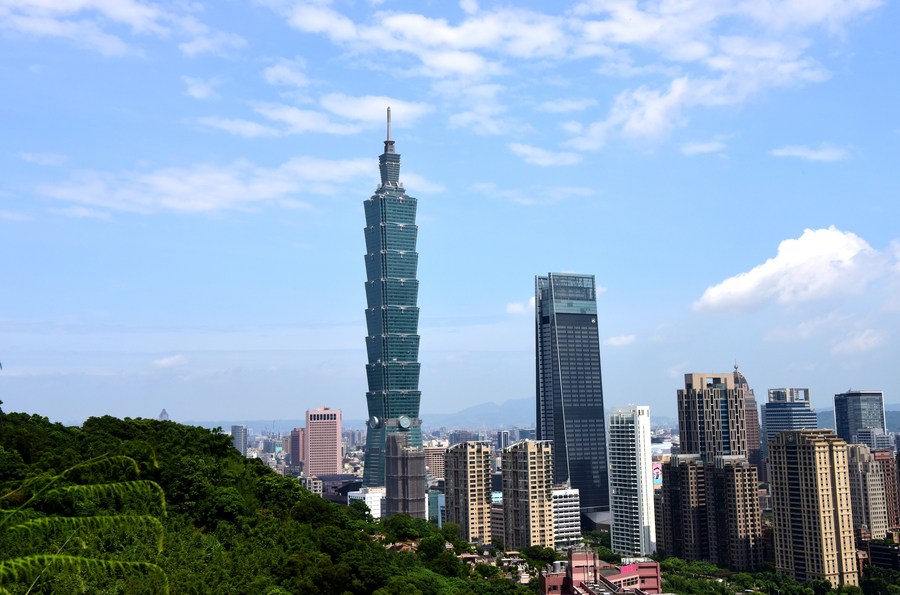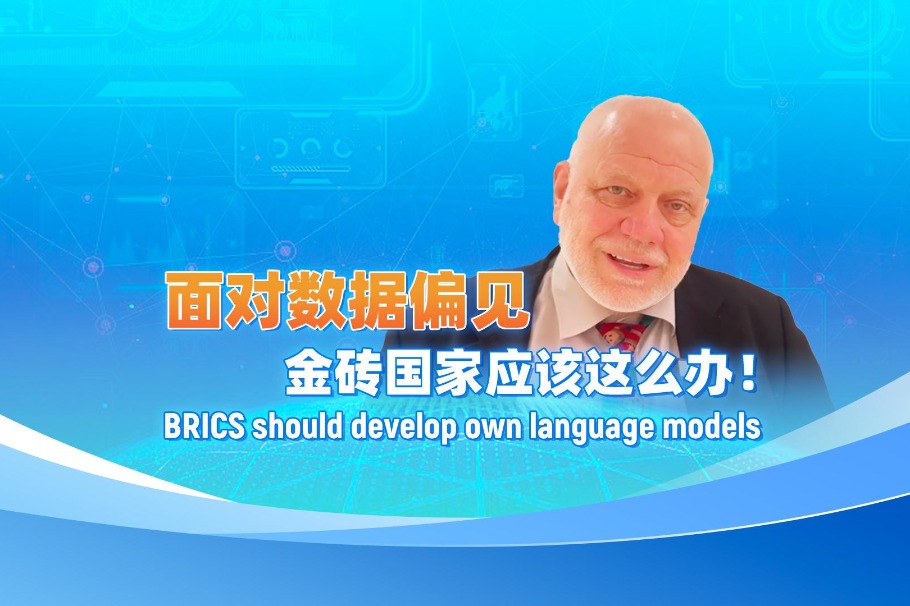US should obey commitment of one-China principle


The ice-breaking trip of former US president Richard Nixon to China and the issuing of the Sino-US Joint Communique (Shanghai Communique) 50 years ago are events of the utmost significance in the history of China-US relations as well as international relations. They ended an era of confrontation and isolation and signaled the normalization of Sino-US relations.
Since relations in 1972 were still at the initial stage of rapprochement, the Shanghai Communique was characterized by both sides as articulating their respective views and basic positions on major international issues as well as the Taiwan question.
Issues left out in the communique were clarified and resolved in the Joint Communique on the Establishment of Diplomatic Relations on Jan 1, 1979, and the Joint Communique of Aug 17, 1982. The three joint communiques are an integral whole, embodying the one-China principle in its entirety that boils down to three axioms: there is only one China in the world; Taiwan is part of China; and the government of the People's Republic of China is the sole legitimate government that represents the whole of China.
Fifty years on-and despite the many changes in bilateral relations and the international situation-the one-China principle remains the political foundation of the Sino-US relationship.
Since Joe Biden took office as US president, senior US officials have been repeatedly saying the United States' one-China policy has not changed. In reality, however, the US side has been doing things that are impacting this policy in various ways.
First, the US has elevated the status of the so-called Six Assurances. The pro-Taiwan forces in the US have a tendency to belittle the three joint communiques while highlighting the Taiwan Relations Act. In recent years, they have even elevated the "Six Assurances" to the level of the Taiwan Relations Act, saying they are a "cornerstone" of the US' policy on Taiwan.
US should not violate principle with 'Six Assurances'
In 1982, when Washington and Beijing negotiated the Joint Communique of Aug 17 on US arms sales to Taiwan, the Ronald Reagan administration drew up a list of assurances to Taiwan-known as the "Six Assurances"-to reduce the possible impact of the communique on Taiwan. These assurances are not law. They are a promise by the Reagan administration-at best, an executive order by the US president at the time.
For decades, whenever the US government spoke of the one-China policy, it said that it was based on the three joint communiques and the Taiwan Relations Act. It avoided mentioning the "Six Assurances", as former assistant secretary of state James Kelly did in his statement to Congress on April 21, 2004.
But in recent years, US policy pronouncements-such as the one made by David Stilwell, assistant secretary of state in the Donald Trump administration, in a speech on Aug 31, 2020, at the Heritage Foundation-have quietly shifted to the three Sino-US communiques, the Taiwan Relations Act and the "Six Assurances" as the basis of Washington's Taiwan policy.
In a December 2021 virtual meeting between the Chinese and US heads of state, Biden emphasized that the US remains committed to the "One-China Policy, guided by the Taiwan Relations Act, the three Joint Communiques, and the Six Assurances".
More important, the US is not only selling arms to Taiwan on a large scale, but also sending military officers to assist with military training and direct Taiwan's military exercises. It has also been sending warships and aircraft to patrol the Taiwan Straits and helping Taiwan produce advanced weapons, which are all serious violations of the one-China provision of the three joint communiques.
Second, the US has changed the way it references Taiwan's strategic significance. Before the Trump administration, mainstream US officials and academia avoided discussing whether Taiwan was of strategic importance, although conservatives have never shied away from smearing China, with one even saying that "China controls Taiwan and, presumably, the Taiwan Straits. It could therefore effectively deny the US and its allies access to critical sea lanes during a conflict... and significantly extend the reach of the PLA in the Asia-Pacific region".
When the Trump administration put forward its Indo-Pacific strategy, it included Taiwan, calling it a "reliable, capable, natural partner" and stating that Taiwan would contribute to the US mission everywhere. And the Biden administration seems to agree with this.
That Kurt Campbell, former assistant secretary of state, said at a meeting in Taipei on Dec 8, 2020, that the partnership between the US and Taiwan would remain robust because the US administration valued its commitment to Taiwan should make clear Washington's Taiwan policy. Campbell went on to add that: "There is a broad group of people across the political aisle that understands the profound significance of Taiwan and our strategic interest in maintaining a strong relationship with Taiwan."
Third, the US secretary of state, secretary of defense and the assistant secretary for national security have said Washington will "remain committed to Taiwan's ability to defend itself", while also "maintaining our capacity to resist any resort to force that would jeopardize the security of the people in Taiwan". That was on Dec 6.
As for US National Security Advisor Jake Sullivan, he said on Dec 9 that," (F) rom the point of view of both deterrence and diplomacy", the US is going to do all it can to ensure that the reunification of China's mainland with the island of Taiwan by force "never happens". Such statements have made separatist forces on the island more aggressive, and the US is squarely responsible for that.
Fourth, once in June and twice in November, US Congress members visited Taiwan after traveling aboard US military aircraft. Recently, with the support of the US, Lithuania violated the one-China principle by allowing Taiwan to open a so-called representative office in the country, and senior US officials commended the Lithuanian government for its "firm policy".
US risky moves will only backfire
The US has promised "bilateral coordinated action" with Lithuania. Also, immediately after the downgrading of relations between China and Lithuania, the latter signed a $600 million export credit agreement with the Export-Import Bank of the United States.
The US has also encouraged its European allies to support Lithuania, and some members of parliament from the three Baltic countries have visited Taiwan and met with island leader Tsai Ing-wen.
And after Nicaragua re-established diplomatic relations with China recently, senior US officials visited Honduras in the hope that the new post-election government would maintain "diplomatic relations" with Taiwan to help the island consolidate its purported "diplomatic ties".
For the more than one year that it has been in office, the Biden administration has been stressing that it does not seek conflict with China and does not support Taiwan independence. But its actions have not matched its words.
In the many interactions between China and the US over the past year, including virtual meetings, phone calls and high-level dialogues, the message from the Chinese side has been clear: the Taiwan question is an internal matter for China that allows no foreign interference; Taiwan has no future other than reunification with the mainland; and the Chinese nation will definitely achieve the reunification of the motherland in the process of achieving national rejuvenation.
These principles represent the firm will of the Chinese people and their government, and it is unshakable. China is fully capable of thwarting any secessionist moves for Taiwan independence and countering all forms of interference by external forces.
The US has been saying that it does not support Taiwan independence and yet trying to prevent China's national reunification. It wants to keep the two sides of the Straits separated so it can use the island as a card to contain China's development. But this is a dangerous card. If the US really wants to peacefully coexist with China, it should handle Taiwan-related issues with extra caution and not play with fire when it comes to the Taiwan question.
The Biden administration should especially remember what former president Barack Obama said at a news conference before he left office: "For China... the idea of one China is at the heart of their conception as a nation. And so if you are going to upend this understanding, you have to have thought through what the consequences are, because the Chinese will not treat that the way they'll treat some other issues... And their reaction on this issue could end up being very significant."
The author is an honorary member of the Chinese Academy of Social Sciences and a senior fellow at the CASS Institute of American Studies.
The views don't necessarily reflect those of China Daily.
Source: chinausfocus.com
If you have specific expertise or would like to share your thoughts, then send your writings to opinion@chinadaily.com.cn and comment@chinadaily.com.cn.

































